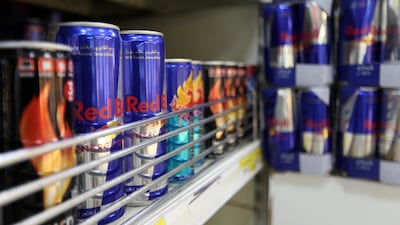I’ve have spent the past few months in these pages encouraging entities to prepare for change, and you might be forgiven for thinking me at times a trite shrill and negative.
Today I want to set aside VAT and talk excise tax, but positively.
Not for me a sin tax on products bad for citizen and country – this, instead, is an opportunity to sweat inches off the waist in the UAE’s supply chain. It might be uncharitable to associate the word sumo with the local supply chain, but a market that incorporates Agency Law has been afforded the opportunity to take more cheat days than your dietician might consider healthy.
Excise duty becomes due as soon as products are released from a tax warehouse. These are facilities that have been authorised by the Federal Tax Authority (FTA) to handle goods that are subject to this. Fenced free zones will not automatically become authorised, however by the nature of their operations and it will be with greater ease that they do so.
More interesting is that onshore warehouses can apply and the rules will be the same. Successful locations will need to have “gatekeepers” in place. These can be third parties whose focus would be kept in check as they might share in any liability where records are not properly kept, goods are incorrectly moved or in the case of fraud, criminal charges and the penalties imposed in sentencing.
It is critical that readers understand that with excise duty, record-keeping is primarily concerned with the movements of stock. I dealt with tax ownership in my previous article, but I would question why in this case an organisation would default to finance.
The FTA can apply additional tests if it feels they are warranted. The object is always to support compliance rather than being heavy handed. A deposit or bond could be demanded to cover potential liabilities, based on historic events or an expectation that they might arise.
The test in deciding the taxation event is twofold: the product being released to the general market, or being made available for consumption. Where these requirements clash, the following example should assist. A carbonated drink for sale in the canteen of a regulated environment will attract the charge.
In the case of carbonated drinks, where the final product is often completed locally, this gives rise to a potential double charge. Firstly, on importation of the concentrate and secondly the finished product on release for general consumption.
The initial charge can be reclaimed against the secondary charge, filed by way of mandated monthly returns that are operated in the same way as value added tax (VAT). Where rebates arise and after FTA review accepted, these monies are paid back two months later. The assumption is that ongoing trading will likely create enough amounts payable to net out any refund.
It makes commercial good sense to shorten the time between release from a tax warehouse to the time of consumer purchase. The amount of monies paid in this time frame are interest-free loans by commercial organisations to the national exchequer. Ultimately consumers will carry the burden, their purchase paying down the loans.
Cash leakage opportunities exist in this loan facility, represented by expired products whose duty is not reclaimable. As products are not typically allowed a shelf life beyond three years from date of manufacture, sitting them in a state of customs suspension will not help. Promotional or sample products provided free of charge will also have excise duty applied.
All major international logistics firms are operating in the UAE, with world-class facilities and in some cases a land bank that allows for expansion within existing master plans. While power requirements in some locations remain an issue for some industries, as a rule the quality of supporting infrastructure is unsurpassed within the GCC.
First mover advantage should fall to those taxed groups that have multiple unaffected verticals. Is there an entity having driven supply chain efficiency to mitigate a shock to its pricing model in one of its businesses that wouldn’t similarly apply those learnings elsewhere within its group?
The cash effect is mostly a one-off hit. This value expands in proportion to market growth, both for incremental consumption and additional selling space coming online. In the UAE the latter is disproportional when measured against international norms.
I sat recently listening to the howls of dismay from one trader in fine cigars, who by way of crying foul, spoke of Dh100,000 cigar boxes doubling overnight in price. This charge might just close that business. Although the purpose of sin taxes is to reduce the demand for these products, I’d argue that hitting the wealthier peripheries might be inane as those consumers could switch to walking these products into the country through airports.
There are already limits on what can be carried by passengers into the UAE, both legally and practically, carbonated and energy drinks fitting the latter case. Tobacco is regulated, the current limit being a choice of up to a maximum of one of the following: 400 cigarettes, 500 grams of tobacco or 50 cigars. To deal with the higher value of cigars, a monetary limit is also likely to apply, but with the label clipped off, how is a customs officer meant to know?
Tobacco, carbonated and energy drinks face rates of 50 per cent to 100 per cent applied to the RSP (recommended selling price). Price disparities by outlet will arise. A can of soda purchased in a supermarket will be substantially cheaper than in a five-star hotel. In this situation the RSP for both can be taken to be the supermarket price. Will we see these fractional rises rounded to the nearest Dh5 by five-star hotels?
Ultimately despite the good intentions, I wonder whether consumers will even notice this sin tax.
David Daly is a chartered accountant (Cima) typically serving in chief financial officer or finance director roles
business@thenational.ae
Follow The National's Business section on Twitter

